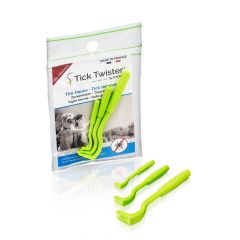Zymoral pancreas powder
Zymoral is an additional powder diet for dogs and cats where digestion of protein, carbohydrate and fat is inadequate. This enzyme deficiencies condition is also known as exocrine pancreas insufficiency. Zymoral can absorb the lack of enzymes because the present (natural) enzymes in it can take over the impaired enzyme production of the (affected) pancreas.
The product is composed of enzymes that cleave fats into glycerol and fatty acids (lipase), enzymes that degrade proteins and other chains of amino acids (proteases) and digestive enzymes which degrade amylose or amylum (a non-branched form of starch) (amylase).
Feeding instructions
Zymoral has to be administered during each meal. It is important that the animal regularly (preferably three times daily) will receive food.
Dosage
The recommended dosage should be tailored to the inadequate of the pancreas and weight of the animal.
|
Dosage |
|
| Animal |
Recommended dosage |
| Dog | 1 scoop per meal |
| Cat | ¼ – ¾ scoop per meal |
 You earn (from) 410 PharmaPoints
You earn (from) 410 PharmaPoints
 Earn 100 PharmaPoints for writing a review for this product
Earn 100 PharmaPoints for writing a review for this productZymoral is an additional powder diet for dogs and cats where digestion of protein, carbohydrate and fat is inadequate. This enzyme deficiencies condition is also known as exocrine pancreas insufficiency. Zymoral can absorb the lack of enzymes because the present (natural) enzymes in it can take over the impaired enzyme production of the (affected) pancreas.
The product is composed of enzymes that cleave fats into glycerol and fatty acids (lipase), enzymes that degrade proteins and other chains of amino acids (proteases) and digestive enzymes which degrade amylose or amylum (a non-branched form of starch) (amylase).
Feeding instructions
Zymoral has to be administered during each meal. It is important that the animal regularly (preferably three times daily) will receive food.
Dosage
The recommended dosage should be tailored to the inadequate of the pancreas and weight of the animal.
|
Dosage |
|
| Animal |
Recommended dosage |
| Dog | 1 scoop per meal |
| Cat | ¼ – ¾ scoop per meal |
Exocrine pancreatic insufficiency (digestive enzyme deficiency)
Exocrine pancreatic insufficiency is characterised by a lack of digestive enzymes. In dogs, this deficiency is generally caused by degradation of the pancreatic cells that produce these enzymes. Exocrine pancreatic insufficiency is most commonly found in German Shepherds Dogs. It usually occurs in the dogs first years of life, but older animals may also develop the condition. Cats may also develop exocrine pancreatic insufficiency, but in cats, unlike dogs, the condition often follows on from chronic pancreatitis and may be accompanied by diabetes.
Signs of exocrine pancreatic insufficiency
Dogs with exocrine pancreatic insufficiency have insatiable appetites but look emaciated and continue to lose weight. The faeces are bulky, yellowish, and have a greasy glistening appearance. Vomiting is occasionally seen. Cats also display increased appetite in the presence of weight loss and diarrhoea. Because of the chronic nature of the condition these symptoms may remain mild for a long period, only becoming more marked as the disorder progresses.
Diagnosis of exocrine pancreatic insufficiency
Exocrine pancreatic insufficiency can be diagnosed by stool and blood tests.
Treatment of exocrine pancreatic insufficiency
Replacement of the missing digestive enzymes is the key to successfully overcoming exocrine pancreatic insufficiency. Most animals respond well to pancreatic enzymes taken with every meal. Other measures, such as antibiotic treatment and/or vitamin injections, may be necessary initially. It is important for the animal to receive sufficient enzymes with every meal to gain weight and help the appetite return to normal. Dogs gain 250 g - 500 g a week during recovery. Once an improvement is apparent, the amount of enzymes given with each meal can be reduced to a maintenance level.
More information about pancreatic disorders can be found here.
| Animal | Dog, Cat |
| Prescription required Netherlands | No |
| Prescription required Germany | No |
| Prescription required France | No |
| Prescription required Spain | No |
| Further information |





